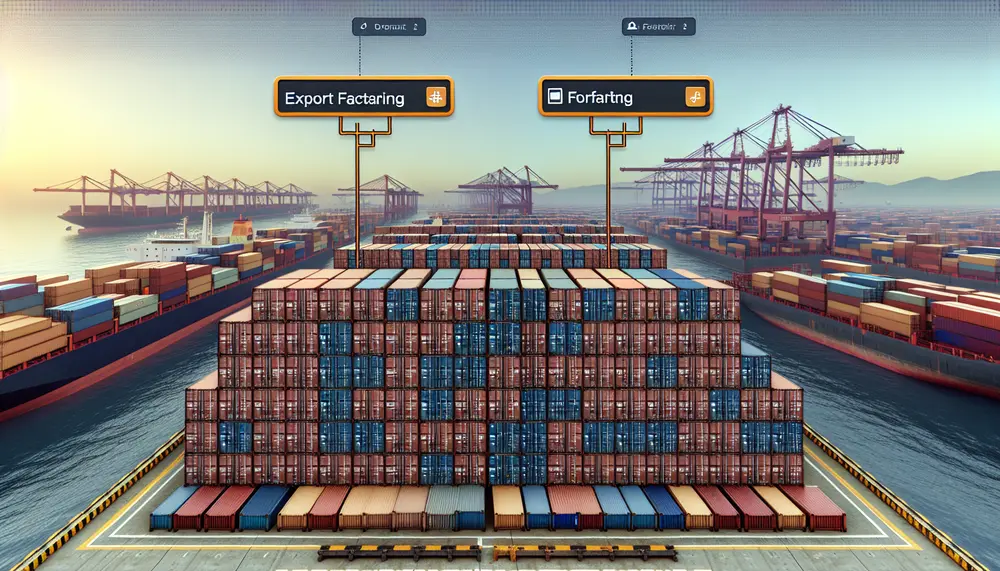Credit insurance
Credit insurance
What is Credit Insurance?
Credit insurance is a powerful tool for businesses seeking protection against the non-payment of debts. It is especially relevant in the world of financial factoring. This kind of insurance offers a safety net for companies that sell goods and services on credit, ensuring that they receive payment even if their clients default.
How Does Credit Insurance Work with Financial Factoring?
When a business engages in financial factoring, it sells its invoices to a factoring company at a discounted rate to get immediate cash. However, there is a risk that the end client may not pay the invoice. This is where credit insurance proves beneficial. The insurance policy covers most of the unpaid debt, providing the factoring company, and in turn the original business, with a layer of security.
Benefits of Credit Insurance
The use of credit insurance in financial factoring offers several benefits. Firstly, it enhances the value of the invoices, making them more attractive to the factoring companies. Secondly, it reduces financial risks, allowing businesses to manage their cash flow more effectively. Lastly, by insuring invoices, companies can confidently extend credit to new and existing customers, thereby promoting growth.
Choosing the Right Credit Insurance Policy
It’s crucial for businesses to select the right credit insurance policy. Factors to consider include the coverage extent, the premium costs, and the insurer's reliability. A well-chosen policy will align with the company's specific needs and the level of risk exposure in their industry.
Conclusion
Credit insurance plays a vital role in securing financial transactions within factoring services. It provides peace of mind to the businesses involved and contributes to a stable financial environment. When used correctly, it can be a key component in a company's growth strategy, allowing for safer credit sales and a stronger relationship with factoring partners.
Blog Posts with the term: Credit insurance

Factoring in Germany involves businesses selling their invoices to a third party at a discount, providing immediate cash flow and mitigating credit risk. The German factoring market is well-established, supported by a strong legal framework, and offers benefits like enhanced...

Factoring involves selling accounts receivable to a third party for immediate cash flow, while Confirming (reverse factoring) is when a financial intermediary pays supplier invoices on behalf of the business, extending payment terms. Both services aid in managing different aspects...

Carillion’s heavy reliance on reverse factoring masked its true financial risks, directly contributing to its collapse and devastating suppliers and creditors....

Export factoring is a financial service where businesses sell their invoices to a factor for immediate capital, enhancing cash flow and transferring credit risk in international trade. Forfaiting involves selling longer-term receivables to a forfaiter who assumes all risks, turning...

An Export Factoring Agreement is a financial arrangement where exporters sell their invoices to a factor for immediate cash, easing cash flow and mitigating non-payment risks. It includes services like credit protection, invoice management, and fund advancement; terms vary widely...

Factoring is a financial transaction where businesses sell their accounts receivable to a third party at a discount for immediate cash flow, while still needing to manage VAT implications carefully. The interaction between factoring and VAT affects the timing of...

Factoring agreements in Malaysia provide businesses, especially SMEs, with immediate liquidity by selling receivables, offering tailored solutions like Islamic factoring and reducing cash flow challenges. These agreements streamline operations through defined steps such as invoice selection, advance payments, and customer...

Factoring companies in India provide crucial alternative financing by managing and funding trade receivables, aiding SMEs with immediate cash flow from credit sales. These services include not just financial transactions but also support like credit risk management, enhancing business growth...

Export factoring without recourse is a financial service where exporters sell their invoices to a factor who assumes all credit risks, ensuring the exporter gets paid even if the overseas customer defaults. This arrangement boosts cash flow and reduces administrative...

In-house factoring is a financial strategy where companies manage their accounts receivable internally to improve cash flow, maintaining control over customer relationships and collections. It requires dedicated resources but can save on fees and enhance liquidity compared to traditional factoring...

Reverse factoring, also known as supplier finance or confirming, is a financial arrangement that enhances cash flow by allowing suppliers early payment on invoices through the involvement of three parties: the buyer, supplier, and financier. This method benefits supply chain...

Factoring is a financial strategy that allows businesses to sell their accounts receivable for immediate cash, improving liquidity and aiding in managing working capital. It involves three parties—the business selling invoices, the debtor owing payment, and the factor purchasing the...

Import export factoring is a financial service that helps businesses in international trade manage cash flow by providing immediate payment for exporters and financing for importers. It enhances liquidity, manages credit risk, offers flexibility, reduces administrative tasks, and can scale...

Invoice factoring in Malaysia is a tech-driven, flexible financing solution with unique local practices—including syariah-compliant options—that help businesses manage cash flow and growth....

Export factoring is a financial service that helps businesses convert international invoices into immediate cash, improving liquidity and reducing the risk of non-payment from foreign buyers. Banks facilitate this process by acting as intermediaries between exporters and factoring companies, providing...